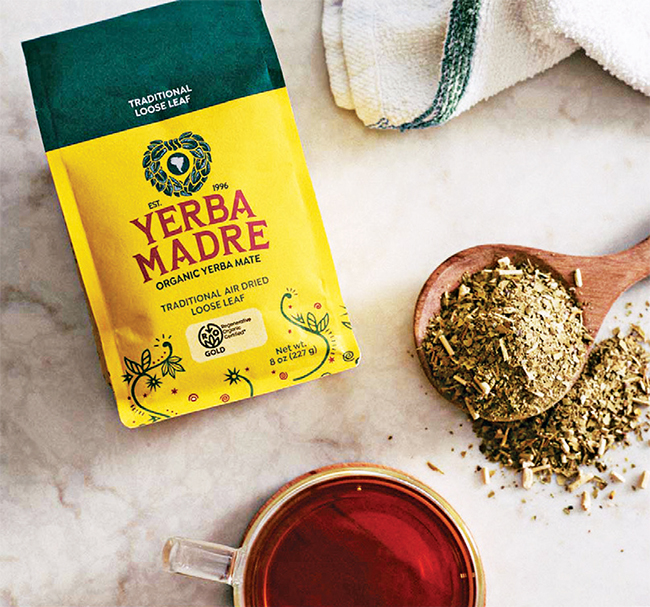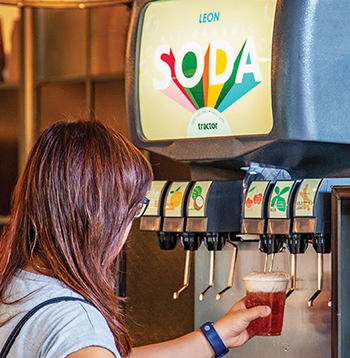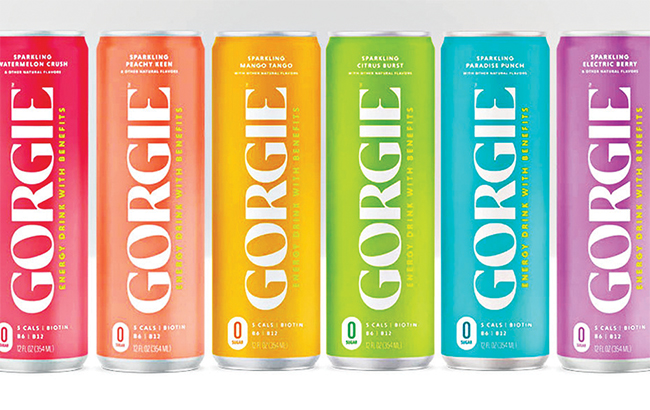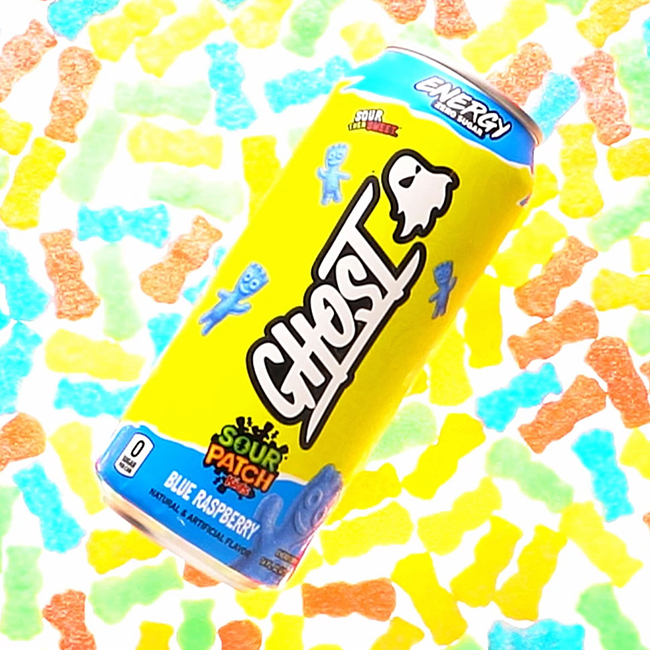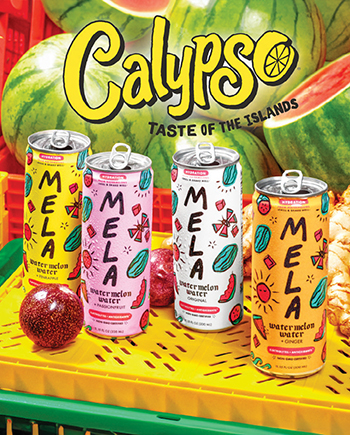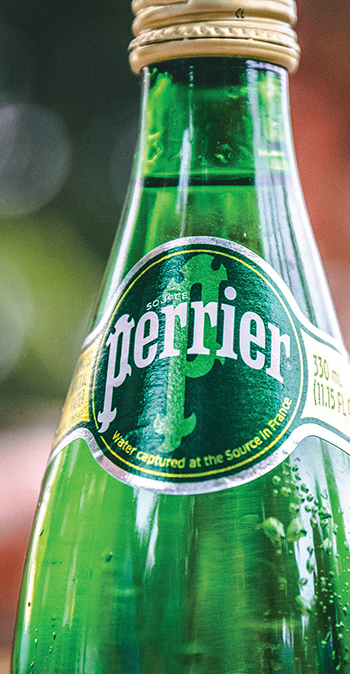Bevscape: The Latest Beverage Brand News
One Mother of a Rebrand: Guayakí Becomes Yerba Madre
After nearly 30 years in business, the mother of North American yerba mate brands is changing its name.
Guayakí announced in May a full rebrand under a new name: Yerba Madre. According to the company, the name – which means “Mother Herb” – is intended to be both easier for consumers to remember and more representative of its diverse set of suppliers and partners across South America.
“This rebrand is about coming back to our roots and recommitting to the mission that inspired the company decades ago,” said co-founder Alex Pryor in a press release. “Yerba mate is more than a beverage, it’s a tradition, empowering cultural and ecosystemic relationships. Yerba Madre honors the communities who have grown the yerba mate plant while ensuring the regeneration of the forest and its sacred value.”
Founded in 1996, Guayakí was originally named in tribute to the indigenous Aché people of Paraguay, who have traditionally consumed yerba mate and served as one of the first major suppliers of the plant for the California-based business.
But according to CEO Ben Mand, since then, the business has grown its supplier partnerships to over 255 farmers across South America, including Argentina and Brazil in addition to Paraguay. After visiting with a number of those partners, Mand said the company felt the brand name should be reflective of the cross-cultural nature of the business as it stands today.
“They’re very proud to work with us, yet they were not reflected by the name,” Mand said of Yerba Madre’s international suppliers. “In all senses of how we brand this company, we’re trying to be as inclusive and positive as we possibly can.”
As for American consumers, Mand noted that native English speakers have often struggled with the proper way to pronounce Guayakí, with even longtime loyal customers instead employing nicknames like “The Yellow Can” or, more simply, “Yerba.”
“I find there’s always a hesitation, a pause, and then almost a bit of a stuttering when people try to say the name Guayakí,” Mand added.
Last year, the company sought to subtly drop the Guayakí name, creating a canned line of drinks that simply said “Yerba Mate” in the brand’s signature trade dress, with only a small call out to the parent company name on the label. Mand said that most consumers didn’t even notice the difference – a testament to the strength of the company’s design versus the name.
The first product relaunching under the Yerba Madre name will be the brand’s traditional air dried loose leaf tea, but Mand said that the brand’s 15.5 oz. RTD line is set to follow soon afterwards and will likely have a casual transition in the marketplace as the older Guayakí-branded cans sell out and are replaced by the new, visually similar, designs.
Despite any difficulties with the old name, the brand has long been the leader in the U.S. for ready-to-drink yerba mate beverages, often presenting in the market as an organic hybrid of tea and energy drinks, and has been experiencing sustained double-digit growth in recent months.
Mand assumed the CEO position in spring 2024, coming to the business from coconut water brand Harmless Harvest (another organic beverage maker with an intricate international supply chain). Since then, he has set about reorganizing the company to improve efficiency and drive growth.
Mand said Yerba Madre has reorganized its innovation team while also working to scale its marketing and sales operations, emphasizing more event and in-store activations and working to develop new products that can appeal to both existing and first-time consumers.
Tractor Lands $15M As Marketing Tour Brings Brand ‘Out in the Wild’
While the company was reticent to discuss recent reported investment, Tractor Beverage Company still has a lot to say.
The organic, non-GMO drink maker, which has established a foothold in fountain service at QSRs like Chipotle and Potbelly through its partnership with Keurig Dr Pepper (KDP), pulled in $15 million in March, according to a quarterly investment report from The Bank of Montreal (BMO).
Chief brand officer Duke Stump and chief revenue officer Brian Barbara declined to comment on the BMO report. A representative from Tractor confirmed that the company is “in the midst of a small raise” and that the figure cited by BMO is “generally in the right ballpark.”
“Here’s what I will say: We’re always desirous of capital if we feel like we need capital for the right reasons,” said Barbara. “And so being in conversations with likeminded investors is also a key piece for us. Then it becomes a function of strategically where we want to invest and what makes the most sense.”
The brand is eager to talk about its “grow strong” strategy, however, as efforts to transcend beyond its roots in foodservice converge with a new guerilla-style nationwide marketing campaign emphasizing Tractor’s connections to independent farmers and regenerative agriculture.
That mission is reflected in Tractor’s Mad Farmer Tour, a seven-month road trip across the U.S. which this week pulled its retrofitted Airstream trailer into the National Restaurant Association (NRA) show at McCormick Place in Chicago in May. The trailer was essentially Tractor’s de facto booth on the show floor, dispensing cold drinks (and cocktails) while acting as a physical space for “immersive brand storytelling.” The broad theme of promoting stronger engagement with parties across the food system aligns with the Farmhand Foundation, an organization promoting and supporting the transition to sustainable and organic farming that was headed by former Tractor chief brand officer Justin Herber (he’s since departed), alongside brand co-founders Griffin Barkley and Justin Schneir.
During a prior tour stop in Chicago, Tractor awarded a pair of $5,000 community grants to two local community leaders who have revitalized vacant lots into garden spaces growing food, part of a $20,000 investment in South and West Side Chicago gardens. That kind of high-touch, message-first activation — the brand’s quarterly online literary magazine Tractor Beam, launched last November, is another — is critical to building traction with consumers outside of the soda fountain, said the brand’s leaders.
“I like to say that this brand needs to be out in the wild,” said Stump. “It’s our ability to connect so that people understand the essence and the DNA of this thing called Tractor. It goes beyond just the beverage.”
Innovation is coming in the second half of this year, when the brand hopes its deliberate, exploratory approach will pay dividends. At last year’s NRA show May, Tractor introduced four RTDs — Lemonade, Strawberry Dragonfruit and Farmer’s Punch, plus a new flavor, Mango Peach — aimed exclusively at foodservice, part of an effort to make the consumer experience “multi-dimensional.” Speaking this month, Stump called the RTDs a “beta exploration that has allowed us to really learn a lot,” the results of which will be seen towards the end of 2025. It’s unclear as to what role KDP may play in RTDs.
Mixers, also introduced at NRA last year, will be less of a focus moving forward, Stump added, but underscore Tractor’s versatility in providing beverage solutions for its customers.
On a personal level, Barbara and Stump are part of Tractor’s corporate evolution; Stump, a seasoned veteran of consumer brands including Nike and Lululemon, arrived last March to succeed Herber, while Barbara, who joined this March, brings experience from Califia Farms and ConAgra.
Yet company leadership has integrated its core mission to improve agriculture and support farmers directly into its corporate development, as Stump can attest. Rather than a planned sales meeting in New Orleans, CEO Kevin Sherman last year organized a “farm camp” in Ojai, California, where employees planted crops, worked the land and reconnected with the brand’s “soil and soul” mantra.
“It feels like every day there’s a new beverage company popping up,” said Stump. “And I think for us, it’s [important] not to get intoxicated with the noise around us, but to be really clear and true on who we are and just lean into that.”
Gorgie Nets Glamorous $24.5M Round, Target Rollout Up Next
Working to go from TikTok and DTC to IRL brick-and-mortar, better-for-you energy drink brand Gorgie announced in May that it has closed a $24.5 million funding round led by Notable Capital.
According to the company, the new capital brings Gorgie’s lifetime funding to $37 million since its launch in 2023. Existing investor Notable Capital is joined in the round by Coefficient Capital and board members Jason Cohen and Yossi Nasseralso.
With a focus on female consumers, Gorgie’s core line of functional energy drinks are made with 150 mg of caffeine from green tea, B vitamins, L-Theanine and biotin in each 12 oz. can.
Initially launched online with an aggressive influencer and social marketing strategy, Gorgie has been building out its DSD distribution network since last year and has landed in major distributors like New York’s Big Geyser, as well as wholesalers UNFI and KeHE. The brand is available in retailers such as Kroger, Albertsons, Sprouts, Erewhon, H-E-B and Whole Foods.
Last year, founder and CEO Michelle Cordeiro Grant told BevNET that Gorgie’s Amazon business was “bringing in about ‘five figures a month’ with little to no effort and attention,’” suggesting the brand was ready to make the extension into retail.
In a press release, the company said that it achieved 5x growth last year with customer reorders coming every eight days on average.
Alongside the new funding, the company said it will add 1,900 Target stores nationwide this summer, which the financing will support.
“This is what disruption looks like,” Cordeiro Grant said in the release. “We built GORGIE to change the way people think about energy—something functional, yes, but also joyful, healthy, and community-powered. Our rapid growth proves the demand for a brand that brings together performance and wellness without compromise and puts community at the forefront.”
Cordeiro Grant told Fortune that Gorgie has marketed itself like a fashion brand to create a stronger emotional connection with consumers – which, as a former Victoria’s Secret executive, is in her area of expertise.
The funding comes at a time where the energy drink category has greatly expanded its reach with women via brands like Celsius and Alani Nu, while legacy players like Monster have sought to soften their hyper-masculine portfolio with lines like Reign Storm. Following its $1.8 billion acquisition by Celsius earlier this year, Alani Nu reported that it had surpassed $1 billion in annual retail sales for the 52-weeks ending April 13.
Culture Pop Lands $15M To ‘Close The Gap’ In Modern Soda
Culture Pop raised over $15 million in April, money which will go towards boosting marketing and expanding distribution, according to founder Tom First.
The latest raise, detailed in a SEC Form D, represents a “planned add-on” investment for the Boston-based soda company from existing investors, First told BevNET. Although there is still an additional $12 million left open, the new funding “is it for now.”
“There’s a potential for a bit more money to come down the road from similar investors under certain terms,” he added.
Culture Pop raised $21 million last February, adding Enlightened Hospitality Investments and a private investment by Howard Schultz to the cap table.
“We’re growing a lot,” said First. “We’ve experienced almost 100% growth every single year and we expect to do that again this year.”
Along with preparing to launch its ninth flavor, Grape, Culture Pop has added several new retail partners in the last year. The brand recently went nationwide in Target, adding on to its footprint in H-E-B, Albertsons and Walmart, among others.
Those gains have been part of the brand’s transition to a direct-store delivery (DSD) model. First acknowledged that its deal with Big Geyser in New York has been “unbelievably” successful tapping into the market’s complex grocery and independent c-store channels.
The brand is in upwards of 18,000 stores (including independent channels), First estimated, and has seen nearly 100% sales growth year-over-year since it was founded in 2020.
Along with adding more sales support, Culture Pop expects to use its new funding on an expanded marketing push. This year the brand invested in its first television advertising campaign and has put dollars into building awareness with ads and activations in metro areas.
The raise underscores the attention investors are paying to next-generation soft drinks as a category. The news of PepsiCo’s $1.95 billion deal to acquire Poppi in March came on the heels of competitor Olipop raising $50 million on a $1.85 billion valuation in February. Total CPG investment grew 83% quarter-over-quarter in Q1 2025, despite being down year-over-year, according to tracking from FABID.
“We have significantly lower awareness than poppi and Olipop, but we’re going to close that gap,” First said.
Mondelez to Ghost: Leave The ‘Kids’ Alone
Ghost has made recognizable candy brand collaborations a cornerstone of its successful business strategy, but its recent acquisition by Keurig Dr Pepper (KDP) has ruptured its relationship with Mondelez, from which it has licensed some of its most popular flavors.
In a trademark infringement suit filed in April, two Mondelez subsidiaries in Illinois are demanding Ghost stop marketing products featuring Sour Patch Kids, Chips Ahoy!, Swedish Fish, Oreo and other well-known trademarks, arguing that the energy drink brand violated a 2018 licensing agreement when it moved to KDP and transferred the licensing rights without required written approval.
The issue stems from the initial 2018 agreement between Ghost and Mondelez that granted the former rights to use certain trademarks in its sports nutrition mixes, protein powders and ready-to-drink products. In that contract, Ghost agreed to not assign any rights without written approval; no such approval was requested at any point, the suit claims, from when the KDP deal was announced in October 2024 to its closing on December 31, 2024.
At some point in January, per court documents, the CEO of Ghost contacted an employee at Mondelez asking the person to “maybe just send a couple sentence memo on letterhead” acknowledging the KDP partnership and “gives us at a minimum 26 [sic] at current terms so so we know Target isn’t going to launch and then disco within a few months?”
Shortly after Ghost’s $990 million sale to KDP was finalized, Mondelez claims it informed Ghost that the licensing agreement would end within three months of the transaction closing. KDP responded by attempting to amend the contract to allow for Ghost’s continued use of the trademarks in exchange for an upfront payment and revised terms, but negotiations did not produce a deal.
When Mondelez set April 17 as the end date for the licensing agreement, Ghost countered with a letter asking, for the first time, for approval of the transfer of rights to KDP. It also stated its intent to continue using the trademarks through April 30 and to continue selling products with those marks for a further 90 days. That sparked more failed contract amendment negotiations, and on April 21 Mondelez affirmed that the deal was over and Ghost was in violation.
“Defendants’ use of the MDLZ Marks is likely to mislead, deceive, and confuse the purchasing public,” read the complaint. “It is likely that consumers will mistakenly believe that Defendants are connected, associated or in some way affiliated with Plaintiffs, when in fact no such connection or affiliation exists, especially because the MDLZ Licensing Agreement expired on April 17, 2025.”
Ghost produces products using licensed IP from Perfetti Van Melle (Bubblicious, Airheads) and Impact Confections (Warheads).
Calypso Acquires Mela Watermelon Water
King Juice (KJ Holding Corp.), the parent company of Calypso Lemonades, expanded its beverage portfolio this spring with the acquisition of plant-based hydration brand Mela Water, producers of a premium watermelon water in cans.
Calypso CEO David Klavsons noted in a press release announcing the acquisition in April that his brand’s national DSD network “coupled with our commercial and supply chain capabilities” will accelerate Mela’s growth.
“We are thrilled to welcome Mela to the beverage platform we have built behind Calypso. Mela is a great brand with strong consumer appeal that is delivering outstanding growth,” said Klavsons. “Mela’s exceptional taste, unique flavors, tropical vibe, and functional hydration make it a strong complement to our Calypso brand.”
With over $137 million in sales (52-week period ended March 21, 2025) per Circana data, the Calypso brand, available in full-sugar and Light varieties in 16 oz. glass bottles, has emerged as a successfully incubated offshoot of Milwaukee-based copacker King Juice, owned by PE firm Mason Wells. This is its first acquisition.
“We are excited to join the Calypso platform as we enter the next phase of our growth,” said Mela CEO and founder Dominic Purpura, who is staying on with the brand. “Our team has done a fantastic job building the brand over the last several years gaining significant distribution with leading retailers while sustaining strong unit velocities. It’s now the perfect time to join the Calypso platform and leverage their infrastructure to scale the brand nationally and internationally.”
Launched by Purpura in 2022, Miami-based Mela has found traction for its four-SKU line of shelf-stable watermelon waters in 11.5 oz. cans in over 10,000 stores through distributors like Rainforest Distribution on the East Coast and Stone Distributing, Los Angeles Distributing, Shoreline and Seacoast Distributing in California. Convenience has been a focus as of late, via partnerships with 7-Eleven and QuikTrip.
In an interview last year, Purpura likened his company’s strategy to how Calypso had gone deep into independent convenience stores to make the brand recognizable to consumers “everywhere.”
Speaking with BevNET, Klavsons noted Mela’s growth “follows what we’ve learned about Calypso” thanks to its “ubiquitous” appeal across retail channels. The two brands share an “island vibe,” too.
“We see this as an ability to leverage the infrastructure and the network, both DSD and supply chain infrastructure, that we have built over the last five or six years with Calypso,” said Klavsons. “It’s a perfect opportunity for us to bring in a brand where we know we can accelerate growth.”
Mela’s watermelon water grew sales over 87% to more than $6.6 million in the 52-week period ended March 21, 2025, according to data from Circana, representing total MULO w/ C-Store (Grocery, Drug, Mass Market, Military, Convenience and Select Club, Dollar, Beauty & Online Retailers).
With Calypso profitable and still growing, Klavsons said the brand is well-positioned to make further buys.
“We’re developing a platform that we’re able to leverage now with acquisition,” he said.
Report: Nestlé Worked with French Government to Cover Up Perrier Scandal
It’s a bottled water scandal that bubbles right to the top.
A French Senate investigation found in May that Nestlé colluded with French government officials to cover up that it had filtered its Perrier brand of sparkling water in clear violation of French and European Union standards for the term “natural mineral water.”
The report claims that Nestlé Waters had begun lobbying French officials in 2021 to allow it to continue calling Perrier “natural” while treating the water.
According to The New York Times, members of President Emmanuel Macron’s office were alleged to be fully aware that “Nestlé had been cheating for years.”
In France and the E.U., the term “mineral water” is defined as being untreated from the source and filtering the water while still using the phrase on bottles is strictly illegal.
The investigation also draws attention to a couple of pressing issues: Nestle’s plans to sell its bottled water portfolio, as well as the long-term viability of natural water sources for beverage brands.
The report comes after Perrier fell under heightened scrutiny last Spring, when water in one of its wells showed signs of contamination. Around the same time, a 2023 report shared with media showed signs of banned pesticides in some of Perrier’s water sources.
Although Nestlé destroyed at least two million bottles of Perrier for safety concerns after the contamination came to light, the company was still the subject of a French government probe following word that it had been filtering Perrier water for sale.
Nestlé paid 2 million euros (about $2.25 million) to settle the dispute in September.
While this scandal may on its face sound like a mundane dispute over labeling regulations, French senator Alexandre Ouizille told the Times it speaks to a serious issue of “regulatory capture and state-industry collusion” and one watchdog group said that Nestlé has acted as if it’s “above the law.”
Nestlé has not admitted wrongdoing but in a statement said the issue highlights “common challenges” for bottled water and that food safety is “a primary goal.”
These latest findings arrived just weeks after Nestlé reportedly hired financial advisory firm Rothschild to help with a planned divestment of its water division as the Swiss conglomerate has said it intends to focus its attention on its biggest brands, with the division valued as high as $5.6 billion, according to Reuters.
In November, Nestlé said it intended to spin out its water business – which includes Perrier and San Pellegrino – into a standalone unit and that it sought to trim costs by $2.8 billion by 2027.
It was only four years ago, in 2021, that Nestlé acquired premium alkaline water brand Essentia in a deal rumored to be around $700 million.
That deal went down within weeks of Nestlé selling its Nestlé Waters North America portfolio to the group that would become BlueTriton Brands for $4.3 billion.
While it’s not been a stated reason for seeking a sale, divesting the last of its water brands would certainly alleviate the headache of managing bottled water brands in an era where contamination appears likely to be an ongoing issue.
As the Times noted, the Perrier scandal not only raises questions about government and corporate corruption, but also the impact climate change and pollution will have on the CPG business and our food systems. Climate scientist Peter Gleick told the Times that it is “becoming harder and harder to find waters safe from contamination.”
It’s unclear whether more natural water brands will transition to filtered water in the future, and for now “natural” is still a premium position for bottled waters.
But if more contamination cases hit the category down the line, brands could be left with little choice.


Receive your free magazine!
Join thousands of other food and beverage professionals who utilize BevNET Magazine to stay up-to-date on current trends and news within the food and beverage world.
Receive your free copy of the magazine 6x per year in digital or print and utilize insights on consumer behavior, brand growth, category volume, and trend forecasting.
Subscribe